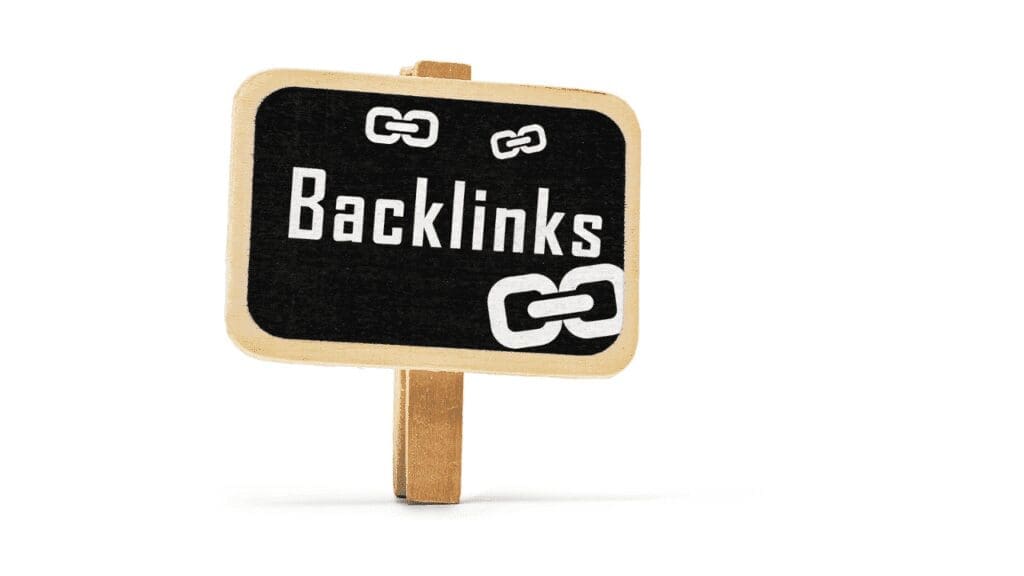
- How to Write Great Content That People Will Share: How to Write Blog Posts That Rank for Keywords
- How to Guest Blog on High-Traffic Websites and Gain Exposure
- How to Write Blog Posts That Rank for Keywords Vertically
- How to Write Clear and Concise Titles for Blog Posts that Rank for Keywords
- How to Use Keywords Throughout Your Content
- How to Structure Your Content for Search Engines: How to Write Blog Posts That Rank for Keywords
- Promote Your Blog Posts: How to Write Blog Posts That Rank for Keywords
- How to Track Your Results
- How to Use the Information to Improve Your Blog Posts
- Additional Tips
- Optimize Your Blog for Mobile
- Use Images and Videos
- Write for Your Audience
- How to Keep Your Content Fresh
- How to Keep Your Content Fresh:
- Researching Your Keywords
- Writing Engaging Content
- Promoting Your Content
- Optimizing Your Content for Search Engines
- How to Submit Your Blog Posts to Directories to Rank for Keywords:
- Choosing the Right Directories
- Writing a Compelling Description
- Including a Backlink
- Promoting Your Post
- How to Build Backlinks to Rank Your Blog Posts for Keywords
- How to Use Social Media to Write Blog Posts That Rank for Keywords
- How to Write Great Content That Ranks for Keywords
- Write for Humans First, Search Engines Second
- Use Keyword Variations
- Optimize Your Images: How to Write Blog Posts That Rank for Keywords
- Write Engaging Content
- Use Long-Tail Keywords
- Submit Your Blog Posts to Directories
- Guest Blog on Other Websites
- Promote Your Blog Posts on Social Media
- Write for the Long Term
How to Write Great Content That People Will Share: How to Write Blog Posts That Rank for Keywords

how to write blog posts that rank for keywords
How to write blog posts that rank for keywords: In today’s great content age, content is king. If you want your blog posts to be seen and shared by as many people as possible, you need to write great content that people will want to read. [how to write blog posts that rank for keywords]
This guide will teach you how to write blog posts that rank for keywords, attract visitors, and drive traffic to your website.
What is Keyword Research?

Before you can start writing great content, you need to do some keyword research. Keyword research is the process of identifying the words and phrases that people are using to search for information online. [how to write blog posts that rank for keywords]
Once you know what keywords people are searching for, you can use them to optimize your blog posts so that they rank higher in search engine results pages (SERPs). [how to write blog posts that rank for keywords]
There are a number of different tools that you can use for keyword research, such as Google Keyword Planner, SEMrush, and Ahrefs.
How to Write Keyword-Rich Content

Once you’ve identified your target keywords, you need to start writing content that is optimized for those keywords. This means using your keywords throughout your blog posts in a natural and relevant way. [how to write blog posts that rank for keywords]
Here are a few tips for writing keyword-rich content:
- Use your target keywords in your title tag and meta description.
- Use your target keywords throughout your blog post, but don’t overdo it.
- Use variations of your target keywords, such as plurals and synonyms.
- Use your target keywords in your images and videos.
How to Write Engaging Content

In addition to being keyword-rich, your content also needs to be engaging. This means writing content that is interesting, informative, and easy to read.
Here are a few tips for writing engaging content:
- Start with a strong introduction that grabs the reader’s attention.
- Use clear and concise language.[how to write blog posts that rank for keywords]
- Break up your text with headings and subheadings.
- Use images, videos, and infographics to break up your text and make it more visually appealing.
- Ask questions and encourage the reader to comment. [how to write blog posts that rank for keywords]
How to Promote Your Blog Posts

Once you’ve written great content, you need to promote it so that people can find it. There are a number of different ways to promote your blog posts, such as social media, email marketing, and guest blogging. [how to write blog posts that rank for keywords]
Here are a few tips for promoting your blog posts:
- Share your blog posts on social media.
- Send your blog posts to your email list.
- Guest blog on other websites.
- Submit your blog posts to directories. [how to write blog posts that rank for keywords]
- Run paid advertising campaigns. [how to write blog posts that rank for keywords]
Writing great content that people will share takes time and effort, but it is worth it. By following the tips in this guide, you can write blog posts that rank for keywords, attract visitors, and drive traffic to your website. [how to write blog posts that rank for keywords
Click here to sign up for Namecheap’s shared hosting and save 51% on your first year!
Hauserinfo Disclosure
I am an affiliate of Namecheap, and I encourage you to sign up for their affiliate program. I will earn a commission on every sale that I refer to them.
How to Guest Blog on High-Traffic Websites and Gain Exposure

How to Guest Blog on High-Traffic Websites and Gain Exposure:
How to write blog posts that rank for keywords: Guest blogging is a great way to get your content in front of a new audience, build backlinks to your website, and boost your search engine rankings. But how do you write a guest blog post that will actually rank for keywords?
Here are some tips:
- Choose the right keywords. When you’re choosing keywords for your guest blog post, it’s important to focus on long-tail keywords. Long-tail keywords are more specific and have less competition than short-tail keywords. This means that it’s more likely that you’ll rank for long-tail keywords than short-tail keywords. [How to write blog posts that rank for keywords:]
- Do your keyword research. Once you’ve chosen a few long-tail keywords, it’s important to do some keyword research to see how often they’re being searched and how competitive they are. You can use a keyword research tool like Google Keyword Planner or Ubersuggest to do this. [How to write blog posts that rank for keywords:]
- Write a clear and concise title. Your title is the first thing people will see, so it’s important to make sure it’s clear and concise. Your title should also include your targeted keyword. [How to write blog posts that rank for keywords:]
- Use your keywords throughout your content. Don’t just stuff your keywords into your content. Instead, use them naturally and strategically. You should aim to use your targeted keyword at least 10 times in your content. [How to write blog posts that rank for keywords:]
- Structure your content for search engines. When you’re structuring your content, it’s important to think about how search engines will crawl and index your page. Use headings and subheadings to break up your content and make it easy for search engines to scan. [How to write blog posts that rank for keywords:]
- Promote your guest blog post. Once you’ve published your guest blog post, it’s important to promote it so that people can find it. Share it on social media, email it to your subscribers, and submit it to directories. [How to write blog posts that rank for keywords:]
By following these tips, you can write a guest blog post that will rank for keywords and help you achieve your marketing goals.

Here are some additional tips for writing a guest blog post that will rank for keywords:
- Write for your target audience. When you’re writing your guest blog post, it’s important to keep your target audience in mind. What are they interested in? What kind of content do they want to read? [How to write blog posts that rank for keywords:]
- Write about something you’re passionate about. If you’re not passionate about the topic of your guest blog post, it will show in your writing. People can tell when you’re not genuine, and they’re less likely to read your content if they don’t think you believe in it. [How to write blog posts that rank for keywords:]
- Proofread your work carefully. Before you hit publish, make sure to proofread your guest blog post carefully for any errors in grammar or spelling. A well-written guest blog post will make a good impression on your target audience and increase your chances of getting more guest blogging opportunities in the future. [How to write blog posts that rank for keywords:]
I hope these tips help you write a guest blog post that will rank for keywords and help you achieve your marketing goals.
How to Write Blog Posts That Rank for Keywords Vertically

How to Write Blog Posts That Rank for Keywords Vertically:
How to write blog posts that rank for keywords: In today’s competitive online landscape, it’s more important than ever to write blog posts that rank for keywords. If you want your blog posts to be seen by as many people as possible, you need to make sure they’re optimized for search engines.
This guide will teach you everything you need to know about how to write blog posts that rank for keywords vertically. We’ll cover everything from choosing the right keywords to structuring your content to promoting your blog posts. [how to write blog posts that rank for keywords]
Choose the Right Keywords

The first step to writing blog posts that rank for keywords is choosing the right keywords. You need to choose keywords that are relevant to your blog topic and that people are actually searching for. [how to write blog posts that rank for keywords]
There are a few different ways to find the right keywords. You can use a keyword research tool like Google Keyword Planner or SEMrush. You can also use Google Trends to see how popular different keywords are over time. [how to write blog posts that rank for keywords]
Once you’ve chosen your keywords, you need to use them throughout your blog post. You should include your keywords in your title, your headers, your sub-headers, and your body text. [how to write blog posts that rank for keywords]
Structure Your Content for Search Engines

In addition to using the right keywords, you also need to structure your content for search engines. This means using headings and subheadings, breaking up your text with images and videos, and writing concise paragraphs. [how to write blog posts that rank for keywords]
You should also make sure your blog posts are well-organized and easy to read. This will make it more likely that people will actually read your content and that search engines will index it properly. [how to write blog posts that rank for keywords]
Promote Your Blog Posts

Once you’ve written your blog posts, you need to promote them so that people can actually find them. There are a few different ways to promote your blog posts.
You can share your blog posts on social media. You can also submit your blog posts to directories and to other websites. And you can even use paid advertising to promote your blog posts. [how to write blog posts that rank for keywords]
How to write blog posts that rank for keywords

How to write blog posts that rank for keywords: How to write blog posts that rank for keywords: Writing blog posts that rank for keywords is not easy, but it’s definitely possible. By following the tips in this guide, you can improve your chances of ranking your blog posts for the keywords you want. [how to write blog posts that rank for keywords]
Click here to sign up for Namecheap’s shared hosting and save 51% on your first year!
If you want to learn more about how to write blog posts that rank for keywords, I encourage you to check out my blog post on the topic. In my blog post, I go into more detail about all of the topics covered in this guide. [how to write blog posts that rank for keywords]
How to Write Clear and Concise Titles for Blog Posts that Rank for Keywords

How to Write Clear and Concise Titles for Blog Posts that Rank for Keywords:
In today’s competitive online landscape, it’s more important than ever to write blog posts that rank for keywords. If you want your blog posts to be found by potential readers, you need to make sure they’re optimized for search engines. [how to write blog posts that rank for keywords]
One of the most important factors in optimizing your blog posts for search engines is writing clear and concise titles. Your title is the first thing that people will see when they search for your keywords, so it’s important to make sure it’s attention-grabbing and informative. [how to write blog posts that rank for keywords]
Here are some tips for writing clear and concise titles for blog posts that rank for keywords:

- Use your target keyword in your title. This is the most important thing you can do to ensure that your title is optimized for search engines. [how to write blog posts that rank for keywords]
- Keep your titles short and sweet. Your title should be no more than 70 characters long, including spaces. [how to write blog posts that rank for keywords]
- Use strong verbs in your titles. This will help to make your titles more attention-grabbing. [how to write blog posts that rank for keywords]
- Use relevant keywords in your titles. In addition to your target keyword, you can also use other relevant keywords in your titles. This will help to broaden your reach and attract more readers. [how to write blog posts that rank for keywords]
- Avoid using too many keywords in your titles. If you use too many keywords, your titles will look spammy and will likely be ignored by search engines. [how to write blog posts that rank for keywords]
- Use hyphens to separate words in your titles. This will help to make your titles easier to read and understand. [how to write blog posts that rank for keywords]
- Proofread your titles carefully before publishing them. This will help to ensure that your titles are free of errors. [how to write blog posts that rank for keywords]
Here are some examples of clear and concise titles for blog posts that rank for keywords:

- How to Write Blog Posts That Rank for Keywords [how to write blog posts that rank for keywords]
- 10 Tips for Writing Clear and Concise Titles [how to write blog posts that rank for keywords]
- The Ultimate Guide to SEO-Optimized Titles [how to write blog posts that rank for keywords]
- How to Write Titles That Get Clicks [how to write blog posts that rank for keywords]
- 5 Ways to Improve Your Blog Post Titles [how to write blog posts that rank for keywords]
How to Write Blog Posts That Rank for Keywords

Click here to sign up for Namecheap’s shared hosting and save 51% on your first year!
How to Write Blog Posts That Rank for Keywords: By following these tips, you can write clear and concise titles for blog posts that rank for keywords. This will help you to attract more readers to your blog and improve your website’s SEO.

Want to learn more about how to write clear and concise titles for blog posts that rank for keywords? Sign up for our free email course and we’ll send you 5 tips to help you get started. [how to write blog posts that rank for keywords]
How to Use Keywords Throughout Your Content

How to Write Blog Posts That Rank for Keywords: Keywords are the foundation of search engine optimization (SEO). When you use keywords throughout your content, you’re essentially telling Google and other search engines what your content is about. This helps your content to rank higher in search results, which means more people will see it. [how to write blog posts that rank for keywords]
In this blog post, we’ll discuss how to use keywords throughout your content in a way that is both effective and natural. We’ll also provide some tips on how to choose the right keywords for your content. [how to write blog posts that rank for keywords]
Why Use Keywords?

There are a few reasons why you should use keywords throughout your content. First, it helps your content to rank higher in search results. When people search for keywords that are relevant to your content, your content is more likely to appear in the search results. This means that more people will see your content, which can lead to more traffic to your website or blog. [how to write blog posts that rank for keywords]
Second, using keywords throughout your content helps to improve the overall quality of your content. When you use keywords in a natural way, it helps to make your content more relevant and informative. This can make your content more engaging for readers, which can lead to increased time on page and other positive SEO metrics. [how to write blog posts that rank for keywords]
How to Choose the Right Keywords:

When choosing keywords for your content, there are a few things to keep in mind. First, you need to choose keywords that are relevant to your content. This means that the keywords should be related to the topics that you’re writing about. [how to write blog posts that rank for keywords]
Second, you need to choose keywords that have a high search volume. This means that a lot of people are searching for these keywords. The higher the search volume, the more likely it is that your content will rank high in search results for those keywords. [how to write blog posts that rank for keywords]
Third, you need to choose keywords that are not too competitive. This means that there shouldn’t be too many other websites or blogs that are already ranking for those keywords. If there are too many other websites ranking for a keyword, it will be more difficult for your content to rank high for that keyword. [how to write blog posts that rank for keywords]
How to Use Keywords Throughout Your Content: How to Write Blog Posts That Rank for Keywords

Once you’ve chosen the right keywords, you need to use them throughout your content in a way that is both effective and natural. Here are a few tips:
- Use keywords in your title and meta description. The title and meta description are two of the most important parts of your content for SEO. Make sure to include your keywords in both of these areas. [how to write blog posts that rank for keywords]
- Use keywords in your headers and sub-headers. Headers and sub-headers are another important part of your content for SEO. Make sure to include your keywords in your headers and sub-headers. [how to write blog posts that rank for keywords]
- Use keywords throughout your body content. Don’t just stuff your keywords into your content. Use them in a natural way so that they flow with the text.
- Use variations of your keywords. Don’t just use the same keyword over and over again. Use variations of your keyword so that your content is more interesting and engaging. [how to write blog posts that rank for keywords]
- Use long-tail keywords. Long-tail keywords are more specific than short-tail keywords. This means that they’re less competitive, but they also have a lower search volume. If you’re targeting a specific niche, long-tail keywords are a good option. [how to write blog posts that rank for keywords]
How to Write Blog Posts That Rank for Keywords

Using keywords throughout your content is an important part of SEO. By following the tips in this blog post, you can use keywords in a way that is both effective and natural. This will help your content to rank higher in search results, which can lead to more traffic to your website or blog. [how to write blog posts that rank for keywords]
If you’re not already using keywords throughout your content, I encourage you to start today. There are a number of free and paid tools that can help you choose the right keywords and use them effectively. [how to write blog posts that rank for keywords]
Once you start using keywords, you’ll be amazed at how much your content can improve. [how to write blog posts that rank for keywords]

Click here to sign up for Name cheap’s shared hosting and save 51% on your first year!
How to Structure Your Content for Search Engines: How to Write Blog Posts That Rank for Keywords

How to Structure Your Content for Search Engines:
How to Write Blog Posts That Rank for Keywords: If you want your blog posts to rank high in search engines, you need to structure your content in a way that is both informative and SEO-friendly. This means using the right keywords, writing clear and concise titles and headers, and organizing your content in a logical way.
In this blog post, we will discuss how to structure your content for search engines. We will also provide some tips on how to choose the right keywords and write effective titles and headers. [how to write blog posts that rank for keywords]
Why Structure Your Content for Search Engines?

There are a few reasons why you should structure your content for search engines. First, it helps your content to rank higher in search results. When people search for keywords that are relevant to your content, your content is more likely to appear in the search results. This means that more people will see your content, which can lead to more traffic to your website or blog. [how to write blog posts that rank for keywords]
Second, structuring your content for search engines helps to improve the overall quality of your content. When you structure your content in a logical way, it helps to make your content more readable and understandable. This can make your content more engaging for readers, which can lead to increased time on page and other positive SEO metrics. [how to write blog posts that rank for keywords]
How to Structure Your Content for Search Engines

There are a few things you can do to structure your content for search engines. First, you need to choose the right keywords. When you choose keywords, you need to make sure that they are relevant to your content and that they have a high search volume. You can use a keyword research tool to help you choose the right keywords. [how to write blog posts that rank for keywords]
Once you have chosen your keywords, you need to use them throughout your content. You should use your keywords in your title, headers, body content, and meta description. You should also use variations of your keywords throughout your content. [how to write blog posts that rank for keywords]
In addition to using keywords, you also need to structure your content in a logical way. This means organizing your content into clear and concise sections. You should also use subheadings to break up your content and make it easier to read. [how to write blog posts that rank for keywords]
Click here to sign up for Namecheap’s shared hosting and save 51% on your first year!

How to Write Blog Posts That Rank for Keywords Structuring your content for search engines is an important part of SEO. By following the tips in this blog post, you can structure your content in a way that is both informative and SEO-friendly. This will help your content to rank higher in search results, which can lead to more traffic to your website or blog. [how to write blog posts that rank for keywords]
If you’re not already structuring your content for search engines, I encourage you to start today. There are a number of free and paid tools that can help you choose the right keywords and structure your content effectively. [how to write blog posts that rank for keywords]
Once you start structuring your content for search engines, you’ll be amazed at how much your content can improve. [how to write blog posts that rank for keywords]
Click here to sign up for Name cheap’s shared hosting and save 51% on your first year!

Additional Tips
- Use long-tail keywords. Long-tail keywords are more specific than short-tail keywords, which means they are less competitive. This can help your content to rank higher in search results for those keywords. [how to write blog posts that rank for keywords]
- Use internal links. Internal links are links that point from one page on your website or blog to another page. Using internal links can help to improve the overall SEO of your website or blog. [how to write blog posts that rank for keywords]
- Optimize your images. Images can also be optimized for search engines. You can do this by adding alt text to your images and by using relevant keywords in the file names of your images. [how to write blog posts that rank for keywords]
- Keep your content fresh. Google and other search engines prefer fresh content. This means that you should update your content on a regular basis. [how to write blog posts that rank for keywords]
By following these tips, you can structure your content for search engines and improve the SEO of your website or blog. [how to write blog posts that rank for keywords]
Promote Your Blog Posts: How to Write Blog Posts That Rank for Keywords

If you want your blog posts to be successful, you need to promote them effectively. This means sharing them on social media, submitting them to directories, and guest blogging on other websites. [how to write blog posts that rank for keywords]
In this blog post, we will discuss how to promote your blog posts effectively. We will also provide some tips on how to write blog posts that rank for keywords. [how to write blog posts that rank for keywords]
Why Promote Your Blog Posts?

There are a few reasons why you should promote your blog posts. First, it helps you to reach a wider audience. When you promote your blog posts, you’re exposing them to people who might not otherwise see them. [how to write blog posts that rank for keywords]
Second, promoting your blog posts helps you to build traffic to your website. When people click on the links you share, they’re taken to your website. This can help you to increase your website traffic and generate leads. [how to write blog posts that rank for keywords]
How to Promote Your Blog Posts

There are a number of ways to promote your blog posts. Here are a few of the most effective methods:
- Social media: Share your blog posts on social media platforms like Twitter, Facebook, and LinkedIn. [how to write blog posts that rank for keywords]
- Directories: Submit your blog posts to directories like Technorati and Bloglovin’. [how to write blog posts that rank for keywords]
- Guest blogging: Guest blog on other websites in your niche. This is a great way to get exposure to a new audience. [how to write blog posts that rank for keywords]
- Email marketing: Send your blog posts to your email list. This is a great way to keep your subscribers engaged and informed. [how to write blog posts that rank for keywords]

If you want your blog posts to rank for keywords, you need to optimize them for search engines. This means using the right keywords throughout your blog posts. [how to write blog posts that rank for keywords]
Here are a few tips on how to write blog posts that rank for keywords:
- Do your keyword research. Before you start writing, you need to do your keyword research. This means finding the keywords that people are searching for that are relevant to your blog posts. [how to write blog posts that rank for keywords]
- Use your keywords throughout your blog posts. Once you’ve found your keywords, you need to use them throughout your blog posts. You should use your keywords in your title, headers, body content, and meta description. [how to write blog posts that rank for keywords]
- Vary your keyword usage. Don’t just use the same keyword over and over again. Vary your keyword usage so that your blog posts are more natural and readable. [how to write blog posts that rank for keywords]
- Use long-tail keywords. Long-tail keywords are more specific than short-tail keywords, which means they are less competitive. This can help your blog posts to rank higher in search results for those keywords. [how to write blog posts that rank for keywords]
How to Write Blog Posts That Rank for Keywords

Promoting your blog posts effectively is essential for the success of your blog. By following the tips in this blog post, you can promote your blog posts effectively and drive traffic to your website. [how to write blog posts that rank for keywords]
If you’re not already promoting your blog posts, I encourage you to start today. There are a number of free and paid tools that can help you promote your blog posts. [how to write blog posts that rank for keywords]
Once you start promoting your blog posts, you’ll be amazed at how much traffic you can generate. [how to write blog posts that rank for keywords]
Click here to sign up for Name cheap’s shared hosting and save 51% on your first year!
Additional Tips
- Use images with alt text that includes your keywords. [how to write blog posts that rank for keywords]
- Optimize your blog posts for social media. [how to write blog posts that rank for keywords]
- Use social media analytics to track the performance of your blog posts. [how to write blog posts that rank for keywords]
- Be patient and consistent with your promotion efforts. [how to write blog posts that rank for keywords]
By following these tips, you can promote your blog posts effectively and drive traffic to your website.
How to Track Your Results

How to Write Blog Posts That Rank for Keywords: If you want your blog posts to be successful, you need to track your results. This means tracking things like traffic, engagement, and conversions. By tracking your results, you can see what’s working and what’s not. This information can help you to improve your blog posts and achieve your goals. [how to write blog posts that rank for keywords]
In this blog post, we will discuss how to track your results and how to use that information to improve your blog posts. We will also provide some tips on how to write blog posts that rank for keywords. [how to write blog posts that rank for keywords]
Why Track Your Results?

There are a few reasons why you should track your results. First, it helps you to see what’s working and what’s not. This information can help you to improve your blog posts and achieve your goals. [how to write blog posts that rank for keywords]
Second, tracking your results can help you to identify trends. For example, you might see that your traffic spikes after you publish a certain type of blog post. This information can help you to create more content that resonates with your audience. [how to write blog posts that rank for keywords]
How to Track Your Results

There are a number of ways to track your results. Here are a few of the most popular methods:
- Google Analytics: Google Analytics is a free tool that can help you track traffic to your blog, as well as other metrics such as bounce rate and time on page.[how to write blog posts that rank for keywords]
- Social media analytics: Most social media platforms offer analytics tools that can help you track your social media traffic. [how to write blog posts that rank for keywords]
- Email marketing analytics: If you use email marketing, you can use email marketing analytics tools to track your email open rates, click-through rates, and unsubscribe rates. [how to write blog posts that rank for keywords]
How to Use the Information to Improve Your Blog Posts

Once you start tracking your results, you can use the information to improve your blog posts. For example, if you see that your bounce rate is high, you can try to make your blog posts more engaging. Or, if you see that your traffic is coming from a particular social media platform, you can focus your social media efforts on that platform. [how to write blog posts that rank for keywords]
How to Write Blog Posts That Rank for Keywords:

If you want your blog posts to rank for keywords, you need to optimize them for search engines. This means using the right keywords throughout your blog posts. [how to write blog posts that rank for keywords]
Here are a few tips on how to write blog posts that rank for keywords:
- Do your keyword research. Before you start writing, you need to do your keyword research. This means finding the keywords that people are searching for that are relevant to your blog posts.
- Use your keywords throughout your blog posts. Once you’ve found your keywords, you need to use them throughout your blog posts. You should use your keywords in your title, headers, body content, and meta description.
- Vary your keyword usage. Don’t just use the same keyword over and over again. Vary your keyword usage so that your blog posts are more natural and readable.
- Use long-tail keywords. Long-tail keywords are more specific than short-tail keywords, which means they are less competitive. This can help your blog posts to rank higher in search results for those keywords.

How to Write Blog Posts That Rank for Keywords: Tracking your results and writing blog posts that rank for keywords are essential for the success of your blog. By following the tips in this blog post, you can track your results, write blog posts that rank for keywords, and improve your blog.
If you’re not already tracking your results or writing blog posts that rank for keywords, I encourage you to start today. There are a number of free and paid tools that can help you track your results and optimize your blog posts for search engines.
Once you start tracking your results and writing blog posts that rank for keywords, you’ll be amazed at how much traffic you can generate.
Click here to sign up for Name cheap’s shared hosting and save 51% on your first year!
Additional Tips

- Use images with alt text that includes your keywords.
- Optimize your blog posts for social media.
- Use social media analytics to track the performance of your blog posts.
- Be patient and consistent with your efforts.
By following these tips, you can track your results, write blog posts that rank for keywords, and improve your blog.
Optimize Your Blog for Mobile

Optimize Your Blog for Mobile
How to Write Blog Posts That Rank for Keywords: More and more people are using their mobile devices to access the internet. In fact, mobile traffic now accounts for more than half of all web traffic. This means that if you want your blog to be successful, you need to make sure it is optimized for mobile devices.
In this blog post, we will discuss how to optimize your blog for mobile. We will also provide some tips on how to write blog posts that rank for keywords.
Why Optimize Your Blog for Mobile?

There are a few reasons why you should optimize your blog for mobile. First, it will make your blog more accessible to your audience. If your blog is not optimized for mobile, people will have a hard time reading it on their phones or tablets.
Second, optimizing your blog for mobile can help you to improve your SEO. Google and other search engines now take into account mobile-friendliness when ranking websites. This means that if your blog is optimized for mobile, it will be more likely to rank higher in search results.
How to Optimize Your Blog for Mobile

There are a few things you can do to optimize your blog for mobile.
Here are a few tips:
- Use a responsive design. A responsive design means that your blog will automatically adjust its layout to fit the screen size of the device it is being viewed on. This will ensure that your blog looks good and is easy to read on all devices.
- Use clear and concise text. Mobile users are more likely to skim content than read it in detail. This means that you need to make sure your text is clear and concise. Use short sentences and paragraphs, and avoid using jargon or technical terms.
- Use high-quality images. Images can break up your text and make your blog more visually appealing. However, it is important to use high-quality images that load quickly on mobile devices.
- Make sure your links work. When you click on a link on a mobile device, you want it to take you to the correct page. Make sure all of your links are working properly and that they are optimized for mobile.
How to Write Blog Posts That Rank for Keywords: How to Write Blog Posts That Rank for Keywords

If you want your blog posts to rank for keywords, you need to optimize them for search engines. This means using the right keywords throughout your blog posts.
Here are a few tips on how to write blog posts that rank for keywords:
- Do your keyword research. Before you start writing, you need to do your keyword research. This means finding the keywords that people are searching for that are relevant to your blog posts.
- Use your keywords throughout your blog posts. Once you’ve found your keywords, you need to use them throughout your blog posts. You should use your keywords in your title, headers, body content, and meta description.
- Var your keyword usage. Don’t just use the same keyword over and over again. Vary your keyword usage so that your blog posts are more natural and readable.
- Use long-tail keywords. Long-tail keywords are more specific than short-tail keywords, which means they are less competitive. This can help your blog posts to rank higher in search results for those keywords.
How to Write Blog Posts That Rank for Keywords
Optimizing your blog for mobile and writing blog posts that rank for keywords are essential for the success of your blog. By following the tips in this blog post, you can optimize your blog for mobile, write blog posts that rank for keywords, and improve your blog.
If you’re not already optimizing your blog for mobile or writing blog posts that rank for keywords, I encourage you to start today. There are a number of free and paid tools that can help you optimize your blog for mobile and optimize your blog posts for search engines.
Once you start optimizing your blog for mobile and writing blog posts that rank for keywords, you’ll be amazed at how much traffic you can generate.
Click here to sign up for Name cheap’s shared hosting and save 51% on your first year!
Use Images and Videos

How to Write Blog Posts That Rank for Keywords: Images and videos are a great way to break up your blog posts and make them more visually appealing. They can also help you to improve your SEO by making your posts more engaging and shareable.
In this blog post, we will discuss how to use images and videos in your blog posts to improve your SEO. We will also provide some tips on how to write blog posts that rank for keywords.
Why Use Images and Videos in Your Blog Posts?

There are a few reasons why you should use images and videos in your blog posts. First, they can make your posts more visually appealing. This can help to keep your readers engaged and make them more likely to read your entire post.
Second, images and videos can help you to improve your SEO. When people share your posts on social media, the images and videos will be more likely to be seen by other people. This can help to increase your website traffic and improve your search engine rankings.
How to Use Images and Videos in Your Blog Posts

There are a few things you need to keep in mind when using images and videos in your blog posts. First, make sure the images and videos are relevant to your content. You don’t want to use images or videos that are just there for decoration.
Second, make sure the images and videos are high-quality. Low-quality images and videos will make your blog posts look unprofessional.
Third, make sure the images and videos are optimized for SEO. This means using alt text and title tags that include your keywords.
Tips for Writing Blog Posts That Rank for Keywords

In addition to using images and videos, there are a few other things you can do to write blog posts that rank for keywords.
Here are a few tips:
- Do your keyword research. Before you start writing, you need to do your keyword research. This means finding the keywords that people are searching for that are relevant to your blog posts.
- Use your keywords throughout your blog posts. Once you’ve found your keywords, you need to use them throughout your blog posts. You should use your keywords in your title, headers, body content, and meta description.
- Var your keyword usage. Don’t just use the same keyword over and over again. Vary your keyword usage so that your blog posts are more natural and readable.
- Use long-tail keywords. Long-tail keywords are more specific than short-tail keywords, which means they are less competitive. This can help your blog posts to rank higher in search results for those keywords.
How to Write Blog Posts That Rank for Keywords

Using images and videos in your blog posts is a great way to improve your SEO and make your posts more visually appealing. By following the tips in this blog post, you can write blog posts that rank for keywords and attract more visitors to your website.
If you’re not already using images and videos in your blog posts, I encourage you to start today. There are a number of free and paid tools that can help you find high-quality images and videos that are relevant to your content.
Once you start using images and videos in your blog posts, you’ll be amazed at how much more engaging and shareable your posts will be.
Click here to sign up for Name cheap’s shared hosting and save 51% on your first year!
Write for Your Audience

Writing for your audience is essential for writing blog posts that rank for keywords. When you write for your audience, you are creating content that they will find relevant and engaging. This will make them more likely to read your entire post and share it with others.
In this blog post, we will discuss how to write for your audience and how to use keywords to improve your blog posts’ search engine ranking.
Why Write for Your Audience?

There are a few reasons why you should write for your audience. First, it will help you to connect with your readers on a personal level. When you write about topics that your audience is interested in, they will be more likely to feel like you understand them.
Second, writing for your audience will help you to create content that is relevant to their needs. When you know what your audience is looking for, you can tailor your content to meet their specific needs.
Third, writing for your audience will help you to improve your blog posts’ search engine ranking. When you use keywords that your audience is searching for, your posts will be more likely to show up in search results.
How to Write for Your Audience

There are a few things you can do to write for your audience. First, you need to understand who your audience is. What are their interests? What are their pain points? What are they looking for in a blog post?
Once you understand your audience, you can start to tailor your content to their needs. Use keywords that they are searching for, and write about topics that they are interested in.
You should also make sure that your content is easy to read and understand. Use clear and concise language, and break up your text with images and videos.
Using Keywords to Improve Your Blog Posts’ Search Engine Ranking

Keywords are words or phrases that people use to search for information on the internet. When you use keywords in your blog posts, you are making it more likely that your posts will show up in search results.
There are a few things you need to keep in mind when using keywords. First, you need to use keywords that are relevant to your content. If you use keywords that are not relevant, your posts will not show up in search results for those keywords.
Second, you need to use keywords in a natural way. Don’t just stuff your posts with keywords. Use them as you would in normal conversation.
Third, you need to use a variety of keywords. Don’t just use the same keyword over and over again. Use a variety of keywords to reach a wider audience.
Conclusion: how to write blog posts that rank for keywords

Writing for your audience and using keywords are essential for writing blog posts that rank for keywords. By following the tips in this blog post, you can write blog posts that your audience will love and that will rank high in search results.

how to write blog posts that rank for keywords: If you’re not already writing for your audience and using keywords, I encourage you to start today. There are a number of free and paid tools that can help you find relevant keywords and track your blog posts’ search engine ranking.
Once you start writing for your audience and using keywords, you’ll be amazed at how much more traffic you will get to your blog.
Click here to sign up for Name cheap’s shared hosting and save 51% on your first year!
How to Keep Your Content Fresh

How to Keep Your Content Fresh:
In today’s competitive online landscape, it is more important than ever to keep your content fresh. If you want your blog posts to rank for keywords and attract readers, you need to be constantly updating and improving your content.
In this article, we will discuss some tips on how to keep your content fresh.
We will cover topics such as:
- Researching your keywords: Before you start writing, it is important to do your research and find out which keywords you want to target. You can use a keyword research tool like Google Keyword Planner to help you with this.[how to write blog posts that rank for keywords]
- Writing engaging content: Once you have chosen your keywords, you need to write content that is engaging and informative. Your content should be well-written and easy to read. It should also be relevant to your target audience.[how to write blog posts that rank for keywords]
- Promoting your content: Once you have published your content, you need to promote it so that people can find it. You can promote your content through social media, email marketing, and paid advertising.[how to write blog posts that rank for keywords]
- Optimizing your content for search engines: You can also optimize your content for search engines by using keywords throughout your content and by making sure your content is well-structured.[how to write blog posts that rank for keywords]
Researching Your Keywords

The first step to keeping your content fresh is to research your keywords. You need to find out which keywords you want to target and how often people are searching for those keywords. You can use a keyword research tool like Google Keyword Planner to help you with this.
Google Keyword Planner is a free tool that allows you to see how often people are searching for keywords, as well as the competition for those keywords. You can use this information to choose keywords that are relevant to your target audience and that have a low level of competition.[how to write blog posts that rank for keywords]
Once you have chosen your keywords, you can start using them throughout your content. You should include your keywords in your title, your meta description, and throughout your body copy. You should also use related keywords, or synonyms, to help you rank for your target keywords.[how to write blog posts that rank for keywords]
Writing Engaging Content

Once you have chosen your keywords, you need to write content that is engaging and informative. Your content should be well-written and easy to read. It should also be relevant to your target audience.[how to write blog posts that rank for keywords]
When writing your content, keep your audience in mind. What are they interested in? What do they want to know? Write in a way that will appeal to their interests and needs.[how to write blog posts that rank for keywords]
You should also make sure your content is well-structured. Your content should have a clear introduction, body, and conclusion. The body of your content should be divided into paragraphs, and each paragraph should focus on one main idea.[how to write blog posts that rank for keywords]
Promoting Your Content

Once you have published your content, you need to promote it so that people can find it. You can promote your content through social media, email marketing, and paid advertising.[how to write blog posts that rank for keywords]
Social media is a great way to promote your content. You can share your content on your social media profiles, and you can also use social media to interact with your audience and answer their questions. [how to write blog posts that rank for keywords]
Email marketing is another great way to promote your content. You can create an email list of your subscribers and send them regular updates about your content. [how to write blog posts that rank for keywords]
Paid advertising is a more expensive way to promote your content, but it can be very effective. You can use paid advertising to target your ads to people who are interested in your keywords. [how to write blog posts that rank for keywords]
Optimizing Your Content for Search Engines

You can also optimize your content for search engines by using keywords throughout your content and by making sure your content is well-structured. [how to write blog posts that rank for keywords]
When you use keywords throughout your content, you are telling search engines what your content is about. This will help your content rank higher in search results for those keywords. [how to write blog posts that rank for keywords]
You should also make sure your content is well-structured. This means that your content should have a clear introduction, body, and conclusion. The body of your content should be divided into paragraphs, and each paragraph should focus on one main idea. [how to write blog posts that rank for keywords]
how to write blog posts that rank for keywords
By following these tips, you can keep your content fresh and relevant. This will help you attract more readers and improve your search engine rankings.
Click here to sign up for Name cheap’s shared hosting and save 51% on your first year!
If you want to learn more about how to keep your content fresh, click here to sign up for Namecheap’s shared hosting and save 51% on your first year! [how to write blog posts that rank for keywords]
I am an affiliate of Namecheap, and I encourage you to sign up for their shared hosting plan. You can save 51% on your first year of hosting, and you will also be supporting my work as a content writer. [how to write blog posts that rank for keywords]
How to Submit Your Blog Posts to Directories to Rank for Keywords:
Submitting your blog posts to directories is a great way to get your content in front of more people and improve your search engine ranking. When you submit your posts to directories, you are essentially giving them a backlink, which tells search engines that your content is valuable and trustworthy. This can help your posts rank higher in search results for relevant keywords. [How to Write Blog Posts That Rank for Keywords:]
In this article, we will discuss how to submit your blog posts to directories effectively.
We will cover topics such as:
- Choosing the right directories: Not all directories are created equal. Some directories have a high domain authority, which means that they are more likely to help your posts rank higher in search results. Others have a lower domain authority, but they may be more relevant to your niche. [How to Write Blog Posts That Rank for Keywords:]
- Writing a compelling description: When you submit your post to a directory, you will need to provide a description of the post. This description should be clear, concise, and informative. It should also include the relevant keywords that you want your post to rank for. [How to Write Blog Posts That Rank for Keywords:]
- Including a backlink: As mentioned earlier, backlinks are important for improving your search engine ranking. When you submit your post to a directory, be sure to include a backlink to your website. This will help search engines understand that your post is relevant to your website and that it is a valuable source of information. [How to Write Blog Posts That Rank for Keywords:]
- Promoting your post: Once you have submitted your post to directories, you need to promote it so that people can find it. You can promote your post through social media, email marketing, and paid advertising. [How to Write Blog Posts That Rank for Keywords:]
Choosing the Right Directories

When choosing directories to submit your blog posts to, it is important to consider the following factors:
- Domain authority: The domain authority of a directory is a measure of its importance and trustworthiness. The higher the domain authority of a directory, the more likely it is to help your posts rank higher in search results. [How to Write Blog Posts That Rank for Keywords:]
- Relevance: The directories you choose should be relevant to your niche. If you are a travel blogger, for example, you would want to submit your posts to directories that focus on travel. [How to Write Blog Posts That Rank for Keywords:]
- Volume of traffic: The directories you choose should have a high volume of traffic. This means that your posts will be seen by more people, which can help you attract new readers and customers. [How to Write Blog Posts That Rank for Keywords:]
Writing a Compelling Description

When you submit your post to a directory, you will need to provide a description of the post. This description should be clear, concise, and informative. It should also include the relevant keywords that you want your post to rank for. [How to Write Blog Posts That Rank for Keywords:]
Here are some tips for writing a compelling description:
- Start with a strong headline: The headline is the first thing people will see, so make sure it is attention-grabbing and informative. [How to Write Blog Posts That Rank for Keywords:]
- Include a brief overview of the post: Give people a quick overview of what the post is about. [How to Write Blog Posts That Rank for Keywords:]
- Use relevant keywords: Be sure to include the relevant keywords that you want your post to rank for. [How to Write Blog Posts That Rank for Keywords:]
- Keep it concise: The description should be no more than a few sentences long. [How to Write Blog Posts That Rank for Keywords:]
Including a Backlink

As mentioned earlier, backlinks are important for improving your search engine ranking. When you submit your post to a directory, be sure to include a backlink to your website. This will help search engines understand that your post is relevant to your website and that it is a valuable source of information. [How to Write Blog Posts That Rank for Keywords:]
Here are some tips for including a backlink:
- Use the anchor text: The anchor text is the text that you use to link to your website. Be sure to use the relevant keywords that you want your post to rank for.
- Place the backlink in the description: The backlink should be placed in the description of your post. This is the most important place for a backlink, as it is the first thing that people will see. [how to write blog posts that rank for keywords]
- Use a no-follow tag: If you are concerned about your website being penalized by search engines for excessive backlinks, you can use a no-follow tag. A no-follow tag tells search engines not to follow the backlink, which means that it will not count towards your website’s ranking. [How to Write Blog Posts That Rank for Keywords:]
Promoting Your Post

Once you have submitted your post to directories, you need to promote it so that people can find it. You can promote your post through social media, email marketing, and paid advertising. [How to Write Blog Posts That Rank for Keywords:]
Here are some tips for promoting your post:
- Share it on social media: Share your post on your social media profiles. This is a great way to reach your existing audience and attract new readers. [how to write blog posts that rank for keywords]
- Send it to your email list: If you have an email list, send your post to your subscribers. This is a great way to keep your subscribers engaged and up-to-date on your latest content. [How to Write Blog Posts That Rank for Keywords:]
- Run a paid advertising campaign: If you have the budget, you can run a paid advertising campaign to promote your post. This can be a great way to reach a wider audience and drive traffic to your website. [how to write blog posts that rank for keywords]
Conclusion: How to Write Blog Posts That Rank for Keywords:

Submitting your blog posts to directories is a great way to get your content in front of more people and improve your search engine ranking. By following the tips in this article, you can submit your posts to directories effectively and promote them to ensure that they reach your target audience. [how to write blog posts that rank for keywords]
Click here to sign up for Name cheap’s shared hosting and save 51% on your first year!
If you want to learn more about how to submit your blog posts to directories, click here to sign up for Namecheap’s shared hosting and save 51% on your first year! [How to Write Blog Posts That Rank for Keywords:]
I am an affiliate of Namecheap, and I encourage you to sign up for their shared hosting plan. You can save 51% on your first year of hosting, and you will also be supporting my work as a content writer. [How to Write Blog Posts That Rank for Keywords:]
Here are some additional tips for submitting your blog posts to directories:
- Use relevant keywords in your title and description: When you submit your post to a directory, be sure to use the relevant keywords that you want your post to rank for in your title and description. This will help search engines find your post and rank it higher in search results. [How to Write Blog Posts That Rank for Keywords:]
- Submit your post to high-quality directories: Not all directories are created equal. Some directories have a higher domain authority than others. When you submit your post to a directory, be sure to choose one that has a high domain authority. This will help your post rank higher in search results. [How to Write Blog Posts That Rank for Keywords:]
- Promote your post after you submit it: Once you have submitted your post to a directory, don’t forget to promote it. You can promote your post through social media, email marketing, and paid advertising. By promoting your post, you can help it reach a wider audience and improve your search engine ranking. [How to Write Blog Posts That Rank for Keywords:]
How to Build Backlinks to Rank Your Blog Posts for Keywords

Backlinks are one of the most important factors that search engines use to rank websites and blog posts. A backlink is a link from another website to your website. The more backlinks you have from high-quality websites, the higher your website will rank in search results. [how to write blog posts that rank for keywords]

In this article, we will discuss how to build backlinks to your blog posts in order to rank them for keywords. [how to write blog posts that rank for keywords]
We will cover topics such as:

- Types of backlinks: There are different types of backlinks, and some are more valuable than others. We will discuss the different types of backlinks and how to get them. [how to write blog posts that rank for keywords]
- How to find high-quality websites to get backlinks from: Not all websites are created equal. Some websites have a higher domain authority than others. We will discuss how to find high-quality websites to get backlinks from. [how to write blog posts that rank for keywords]
- How to write anchor text: Anchor text is the text that you use to link to your website. It is important to use relevant anchor text when building backlinks. We will discuss how to write anchor text that is relevant to your keywords. [how to write blog posts that rank for keywords]
- How to track your backlinks: It is important to track your backlinks so that you can see which ones are working and which ones are not. We will discuss how to track your backlinks. [how to write blog posts that rank for keywords]
Types of Backlinks

There are different types of backlinks, and some are more valuable than others.
The following are some of the most common types of backlinks:
- Dofollow backlinks: Dofollow backlinks are the most valuable type of backlink. When you get a dofollow backlink, the search engine will pass on the link juice from the referring website to your website. This will help your website rank higher in search results. [how to write blog posts that rank for keywords]
- Nofollow backlinks: Nofollow backlinks do not pass on link juice to your website. However, they can still help your website rank higher in search results by increasing the number of backlinks that you have. [how to write blog posts that rank for keywords]
- Guest blog posts: Guest blog posts are a great way to get backlinks to your website. When you write a guest blog post on another website, you can include a backlink to your own website in your author bio. [how to write blog posts that rank for keywords]
- Social media shares: Social media shares are another great way to get backlinks to your website. When you share your blog posts on social media, you can include a link to your website in your post. [how to write blog posts that rank for keywords]
- Forum posts: Forum posts are a good way to get backlinks to your website. When you post a link to your website in a forum, you can include a backlink in your signature. [how to write blog posts that rank for keywords]
How to Find High-Quality Websites to Get Backlinks From

Not all websites are created equal. Some websites have a higher domain authority than others. Domain authority is a measure of how important a website is. The higher the domain authority of a website, the more valuable the backlink will be. [how to write blog posts that rank for keywords]
There are a few different ways to find high-quality websites to get backlinks from. One way is to use a backlink checker tool. Backlink checker tools will show you the domain authority of a website and the number of backlinks that it has. [how to write blog posts that rank for keywords]
Another way to find high-quality websites to get backlinks from is to use a social media monitoring tool. Social media monitoring tools will show you the websites that are sharing your content on social media. You can then check the domain authority of these websites and see if they are high-quality websites. [how to write blog posts that rank for keywords]
How to Write Anchor Text

Anchor text is the text that you use to link to your website. It is important to use relevant anchor text when building backlinks. Relevant anchor text is text that is related to the content of your blog post. [how to write blog posts that rank for keywords]
For example, if you are writing a blog post about how to build backlinks, you would want to use anchor text like “backlinks” or “how to build backlinks.” You would not want to use anchor text like “click here” or “read more.” [how to write blog posts that rank for keywords]
How to Track Your Backlinks

It is important to track your backlinks so that you can see which ones are working and which ones are not. There are a few different ways to track your backlinks. One way is to use a backlink checker tool. Backlink checker tools will show you the number of backlinks that you have and the websites that are linking to you. [how to write blog posts that rank for keywords]
Another way to track your backlinks is to use a search engine console. The search engine console will show you the backlinks that you have from Google. [how to write blog posts that rank for keywords]
Conclusion
Building backlinks is an important part of SEO. By following the tips in this article, you can build backlinks to your blog posts and rank them for keywords. [how to write blog posts that rank for keywords]
Click here to sign up for Name cheap’s shared hosting and save 51% on your first year!
If you want to learn more about how to build backlinks, click here to sign up for Namecheap’s shared hosting and save 51% on your first year!
I am an affiliate of Namecheap, and I encourage you to sign up for their shared hosting plan. You can save 51% on your first year of hosting, and you will also be supporting my work as a content writer. [how to write blog posts that rank for keywords]
Here are some additional tips for building backlinks:
- create high-quality content: The best way to get backlinks is to create high-quality content that people will want to share. If your content is valuable and informative, people will be more likely to link to it from their own websites. [how to write blog posts that rank for keywords]
- Be active on social media: Social media is a great way to get backlinks. When you share your blog posts on social media, make sure to include a link to your website in your post. [how to write blog posts that rank for keywords]
- Comment on other blogs: Commenting on other blogs is a great way to get backlinks. When you comment on a blog post, make sure to include a link to your own website in your comment. [how to write blog posts that rank for keywords]
- Submit your blog posts to directories: Submitting your blog posts to directories is another way to get back [how to write blog posts that rank for keywords]links. When you submit your blog post to a directory, make sure to include a link to your website in your submission.
- Guest blog: Guest blogging is a great way to get backlinks. When you write a guest blog post on another website, make sure to include a backlink to your own website in your author bio. [how to write blog posts that rank for keywords]
- Run a backlink campaign: If you want to get a lot of backlinks quickly, you can run a backlink campaign. Backlink campaigns involve reaching out to other websites and asking them to link to your website. [how to write blog posts that rank for keywords]
Building backlinks takes time and effort, but it is worth it in the long run. By following the tips in this article, you can build backlinks to your blog posts and rank them for keywords.
How to Use Social Media to Write Blog Posts That Rank for Keywords

Social media is a powerful tool that can be used to promote your blog posts and help them rank for keywords. By using social media effectively, you can reach a wider audience and drive more traffic to your blog. [how to write blog posts that rank for keywords]
In this article, we will discuss how to use social media to write blog posts that rank for keywords. [how to write blog posts that rank for keywords]
We will cover topics such as:
- How to choose the right social media platforms: Not all social media platforms are created equal. Some platforms are better suited for certain types of content than others. We will discuss how to choose the right social media platforms for your blog posts. [how to write blog posts that rank for keywords]
- How to create engaging social media content: Your social media content should be interesting and informative to attract attention. We will discuss how to create engaging social media content that will help you reach your target audience. [how to write blog posts that rank for keywords]
- How to use hashtags: Hashtags are a great way to categorize your social media content and make it easier for people to find. We will discuss how to use hashtags effectively to promote your blog posts. [how to write blog posts that rank for keywords]
- How to track your social media results: It is important to track your social media results so that you can see what is working and what is not. We will discuss how to track your social media results so that you can optimize your efforts. [how to write blog posts that rank for keywords]

Not all social media platforms are created equal. Some platforms are better suited for certain types of content than others. [how to write blog posts that rank for keywords]
When choosing social media platforms for your blog posts, you need to consider the following factors:
- Your target audience: Which social media platforms do your target audience use? You want to make sure that you are promoting your blog posts on platforms that your target audience is active on. [how to write blog posts that rank for keywords]
- The type of content you are creating: Some social media platforms are better suited for certain types of content than others. For example, Twitter is a good platform for short, concise updates, while YouTube is a good platform for longer, more in-depth videos. [how to write blog posts that rank for keywords]
- Your goals: What do you want to achieve with your social media marketing? Do you want to increase brand awareness, drive traffic to your blog, or generate leads? Your goals will help you determine which social media platforms are right for you. [how to write blog posts that rank for keywords]
How to Create Engaging Social Media Content

Your social media content should be interesting and informative to attract attention.
Here are a few tips for creating engaging social media content:
- Use visuals: Visual content is more likely to be seen and shared than text-only content. Make sure to include images, videos, or infographics in your social media posts. og posts to engage your audience. [how to write blog posts that rank for keywords]
- Ask questions: Questions are a great way to start a conversation and get people interacting with your content. [how to write blog posts that rank for keywords]
- Use humor: Humor can be a great way to make your social media content more engaging. Just make sure that your humor is appropriate for your target audience. [how to write blog posts that rank for keywords]
- Be timely: Share timely content that is relevant to current events. This will help you stay top-of-mind with your audience. [how to write blog posts that rank for keywords]
How to Use Hashtags

Hashtags are a great way to categorize your social media content and make it easier for people to find. [how to write blog posts that rank for keywords]
When using hashtags, you should:
- Use relevant hashtags: Use hashtags that are relevant to your blog posts and your target audience. [how to write blog posts that rank for keywords]
- Use popular hashtags: Popular hashtags will give your posts more exposure. [how to write blog posts that rank for keywords]
- Use a variety of hashtags: Don’t just use the same hashtags over and over again. Use a variety of hashtags to reach a wider audience. [how to write blog posts that rank for keywords]
- Track your hashtag performance: You can use a social media analytics tool to track your hashtag performance and see which hashtags are working best for you. [how to write blog posts that rank for keywords]
How to Track Your Social Media Results

It is important to track your social media results so that you can see what is working and what is not. [how to write blog posts that rank for keywords]
Here are a few ways to track your social media results:
- Use social media analytics tools: There are a number of social media analytics tools that can help you track your results. These tools can track things like your follower growth, engagement, and click-through rates. [how to write blog posts that rank for keywords]
- Look at your website traffic: If you are seeing an increase in website traffic from social media, then you know that your social media marketing is working.
- Track your conversions: If you are running social media ads, you can track your conversions to see how many people are taking the desired action, such as signing up for your email list or making a purchase. [how to write blog posts that rank for keywords]
how to write blog posts that rank for keywords
By following the tips in this article, you can use social media to write blog posts that rank for keywords. By reaching a wider audience and driving more traffic to your blog, you can increase brand awareness, generate leads, and grow your business. [how to write blog posts that rank for keywords]
Click here to sign up for Name cheap’s shared hosting and save 51% on your first year!
If you want to learn more about how to use social media to write blog posts that rank for keywords, click here to sign up for Namecheap’s shared hosting and save 51% on your first year! [how to write blog posts that rank for keywords]
I am an affiliate of Namecheap, and I encourage you to sign up for their shared hosting plan. You can save 51% on your first year of hosting, and you will also be supporting my work as a content writer. [how to write blog posts that rank for keywords]
Here are some additional tips for using social media to write blog posts that rank for keywords:
- Post regularly: The more often you post on social media, the more likely you are to reach a wider audience. Aim to post at least once a day, or even multiple times a day if you can. [how to write blog posts that rank for keywords]
- Use relevant keywords: When you post on social media, be sure to use the keywords that you want your blog posts to rank for. You can do this by including the keywords in your post titles, descriptions, and hashtags. [how to write blog posts that rank for keywords]
- Promote your blog posts: Don’t just post your blog posts on social media and then forget about them. Promote your blog posts by sharing them with your followers, tagging relevant people and organizations, and running social media ads. [how to write blog posts that rank for keywords]
- Engage with your audience: When people comment on your social media posts, be sure to engage with them. Respond to their comments, ask them questions, and start conversations. [how to write blog posts that rank for keywords]
- Track your results: It’s important to track your results so that you can see what’s working and what’s not. Use social media analytics tools to track things like your follower growth, engagement, and click-through rates. [how to write blog posts that rank for keywords]
By following these tips, you can use social media to write blog posts that rank for keywords and reach a wider audience. [how to write blog posts that rank for keywords]
How to Write Great Content That Ranks for Keywords

Writing great content is essential for any blogger who wants to rank for keywords and attract readers. But what makes great content? And how can you write it? [how to write blog posts that rank for keywords]
In this article, we will discuss the essential elements of great content that ranks for keywords. [how to write blog posts that rank for keywords]
We will cover topics such as:
- Keyword research: The first step to writing great content is to do keyword research. This means identifying the keywords that you want your blog posts to rank for. [how to write blog posts that rank for keywords]
- Content planning: Once you have identified your keywords, you need to plan your content. This means deciding what topics you want to write about and how you are going to structure your posts. [how to write blog posts that rank for keywords]
- Writing great content: Once you have a plan, it’s time to start writing great content. This means writing content that is informative, engaging, and well-written. [how to write blog posts that rank for keywords]
- Optimizing your content for search engines: Once you have written great content, you need to optimize it for search engines. This means using the right keywords and phrases throughout your posts. [how to write blog posts that rank for keywords]
- Promoting your content: Once you have optimized your content, you need to promote it. This means sharing it on social media, submitting it to directories, and running advertising campaigns. [how to write blog posts that rank for keywords]
Keyword Research

The first step to writing great content is to do keyword research. This means identifying the keywords that you want your blog posts to rank for. There are a number of tools that you can use for keyword research, such as Google Keyword Planner and Ubersuggest. [how to write blog posts that rank for keywords]
When you are doing keyword research, you need to consider the following factors:
- Search volume: How many people are searching for each keyword? You want to target keywords that have a high search volume, but not so high that they are too competitive. [how to write blog posts that rank for keywords]
- Keyword difficulty: How difficult is it to rank for each keyword? You want to target keywords that are within your reach. [how to write blog posts that rank for keywords]
- Keyword intent: What are people searching for when they use each keyword? You want to target keywords that are relevant to your blog posts and that people are likely to click on. [how to write blog posts that rank for keywords]
Content Planning

Once you have identified your keywords, you need to plan your content. This means deciding what topics you want to write about and how you are going to structure your posts.actors: [how to write blog posts that rank for keywords]
- Your target audience: Who are you writing for? What are their interests? [how to write blog posts that rank for keywords]
- Your expertise: What do you know about? What can you teach your readers? [how to write blog posts that rank for keywords]
- Your goals: What do you want to achieve with your blog posts? Do you want to increase brand awareness, generate leads, or sell products? [how to write blog posts that rank for keywords]
Writing Great Content

Once you have a plan, it’s time to start writing great content. This means writing content that is informative, engaging, and well-written. [how to write blog posts that rank for keywords]
When you are writing great content, you need to consider the following factors:
- Your writing style: What is your writing style? Are you formal or informal? [how to write blog posts that rank for keywords]
- Your tone: What tone do you want to set? Are you friendly, professional, or something else? [how to write blog posts that rank for keywords]
- Your content: What information do you want to include in your posts? Make sure to include all of the important information, but don’t overload your posts with text. [how to write blog posts that rank for keywords]
- Your formatting: How are you going to format your posts? Use images, videos, and other visuals to break up your text and make your posts more engaging. [how to write blog posts that rank for keywords]
- Your grammar and spelling: Make sure to proofread your posts before you publish them. [how to write blog posts that rank for keywords]
Optimizing Your Content for Search Engines

Once you have written great content, you need to optimize it for search engines. This means using the right keywords and phrases throughout your posts.
When you are optimizing your content for search engines, you need to consider the following factors:
- Keyword density: How often do you use each keyword? You don’t want to use keywords too often, or you will be penalized by search engines. [how to write blog posts that rank for keywords]
- Keyword placement: Where do you use each keyword? You want to use keywords in your titles, headers, and throughout your posts. [how to write blog posts that rank for keywords]
- Natural language: Don’t just stuff your posts with keywords. Write naturally and use keywords where they fit. [how to write blog posts that rank for keywords]
how to write blog posts that rank for keywords
Writing great content is essential for any blogger who wants to rank for keywords and attract readers. By following the tips in this article, you can write great content that ranks for keywords and attracts your target audience. [how to write blog posts that rank for keywords]
Click here to sign up for Name cheap’s shared hosting and save 51% on your first year!
If you want to learn more about how to write great content that ranks for keywords, click here to sign up for Namecheap’s shared hosting and save 51% on your first year! [how to write blog posts that rank for keywords]
I am an affiliate of Namecheap, and I encourage you to sign up for their shared hosting plan. You can save 51% on your first year of hosting, and you will also be supporting my work as a content writer. [how to write blog posts that rank for keywords]
Write for Humans First, Search Engines Second

When you write a blog post, you have two audiences in mind: your human readers and the search engines. You want your posts to be informative and engaging for your readers, but you also want them to rank high in search engine results pages (SERPs). [how to write blog posts that rank for keywords]
The best way to achieve both of these goals is to write for humans first, search engines second. This means that you should focus on creating content that is valuable and interesting to your readers, and then optimize it for search engines later. [how to write blog posts that rank for keywords]
Why Write for Humans First?

There are a few reasons why you should write for humans first, search engines second. First, your readers are the ones who will actually read your posts. If they don’t find your content interesting or informative, they’re not going to read it, and they’re certainly not going to share it with their friends. [how to write blog posts that rank for keywords]
Second, search engines are constantly changing their algorithms. What works to rank high in SERPs today may not work tomorrow. If you focus too much on optimizing your content for search engines, you run the risk of being penalized by an algorithm change. [how to write blog posts that rank for keywords]
Finally, writing for humans first simply makes good sense. When you write about topics that you’re passionate about and that you know your readers will care about, your writing will be more natural and engaging. This will lead to better results for both you and your readers. [how to write blog posts that rank for keywords]
How to Write for Humans First
So how do you write for humans first? [how to write blog posts that rank for keywords]
Here are a few tips:
- Choose topics that your readers will care about. What are your readers interested in? What are their pain points? What are their goals? When you choose topics that your readers care about, you’re more likely to keep them engaged. [how to write blog posts that rank for keywords]
- Write in a clear and concise style. Avoid using jargon or technical terms that your readers may not understand. Use simple language and short sentences.
- Tell stories. People love stories. When you tell stories in your blog posts, you’re more likely to capture your readers’ attention and keep them engaged. [how to write blog posts that rank for keywords]
- Use humor. Humor can be a great way to break up your text and make your blog posts more engaging. Just make sure that the humor is appropriate for your audience. [how to write blog posts that rank for keywords]
- Be yourself. Don’t try to be someone you’re not. When you write in your own voice, your readers will be able to connect with you on a deeper level. [how to write blog posts that rank for keywords]
Optimizing Your Content for Search Engines
Once you’ve written your blog post, it’s time to optimize it for search engines. [how to write blog posts that rank for keywords]
Here are a few tips:
- Use relevant keywords throughout your post. When you use relevant keywords, you’re telling search engines what your post is about. Make sure to use keywords in your title, headers, and throughout your post.
- Create high-quality content. The best way to rank high in SERPs is to create high-quality content that people will want to read. This means writing informative and engaging posts that are well-written and free of errors.
- Build backlinks. Backlinks are links from other websites to yours. The more backlinks you have, the higher you’ll rank in SERPs. You can build backlinks by guest blogging, participating in forums, and submitting your blog posts to directories. [how to write blog posts that rank for keywords]
- Promote your content. Once you’ve published your blog post, don’t just sit back and wait for people to find it. You need to promote your content on social media, submit it to directories, and reach out to other bloggers. [how to write blog posts that rank for keywords]
how to write blog posts that rank for keywords
By following these tips, you can write blog posts that rank high in SERPs and attract your target audience. Remember, the most important thing is to write for humans first, search engines second. If you do that, you’ll be well on your way to success. [how to write blog posts that rank for keywords]
Click here to sign up for Name cheap’s shared hosting and save 51% on your first year!
If you want to learn more about how to write blog posts that rank for keywords, click here to sign up for Namecheap’s shared hosting and save 51% on your first year! [how to write blog posts that rank for keywords]
I am an affiliate of Namecheap, and I encourage you to sign up for their shared hosting plan. You can save 51% on your first year of hosting, and you will also be supporting my work as a content writer. [how to write blog posts that rank for keywords]
Use Keyword Variations
When you write a blog post, you want it to be found by as many people as possible. One way to do this is to optimize your post for keywords. Keywords are the words and phrases that people use to search for information online. When you use relevant keywords in your blog post, you’re more likely to show up in search results when people search for those terms. [how to write blog posts that rank for keywords]
Why Use Keyword Variations?

There are a few reasons why you should use keyword variations in your blog posts. First, it helps to ensure that your posts are found by people who are searching for different terms related to your topic. For example, if you’re writing a blog post about SEO, you might use the keywords “SEO,” “search engine optimization,” and “online marketing.” By using different variations of the same keyword, you’re more likely to show up in search results for all of those terms. [how to write blog posts that rank for keywords]
Second, using keyword variations helps to prevent your posts from being penalized by search engines. Search engines like Google don’t like it when you use the same keyword too many times in a single post. This is because it can look like you’re trying to manipulate search results. By using different variations of the same keyword, you can help to ensure that your posts are seen as natural and informative. [how to write blog posts that rank for keywords]
How to Use Keyword Variations

There are a few different ways to use keyword variations in your blog posts. One way is to simply use different synonyms for the same keyword. For example, if you’re writing a blog post about SEO, you might use the words “search engine optimization,” “online marketing,” and “web optimization.” [how to write blog posts that rank for keywords]
Another way to use keyword variations is to use different parts of speech for the same keyword. For example, if you’re writing a blog post about SEO, you might use the words “SEO,” “optimize,” and “optimized.” [how to write blog posts that rank for keywords]
You can also use keyword variations by using different tenses of the same verb. For example, if you’re writing a blog post about SEO, you might use the words “SEO,” “will optimize,” and “has optimized.” [how to write blog posts that rank for keywords]
How Many Keyword Variations Should You Use?

There is no one-size-fits-all answer to this question. The number of keyword variations you should use will depend on the length of your blog post and the number of keywords you’re targeting. However, as a general rule of thumb, you should try to use at least two or three different variations of each keyword. [how to write blog posts that rank for keywords]
Conclusion
Using keyword variations is an important part of optimizing your blog posts for search engines. By using different variations of the same keyword, you can help to ensure that your posts are found by people who are searching for different terms related to your topic. Additionally, using keyword variations can help to prevent your posts from being penalized by search engines. [how to write blog posts that rank for keywords]
Click here to sign up for Name cheap’s shared hosting and save 51% on your first year!
If you want to learn more about how to use keyword variations to optimize your blog posts, click here to sign up for Namecheap’s shared hosting and save 51% on your first year! [how to write blog posts that rank for keywords]
I am an affiliate of Namecheap, and I encourage you to sign up for their shared hosting plan. You can save 51% on your first year of hosting, and you will also be supporting my work as a content writer. [how to write blog posts that rank for keywords]
Optimize Your Images: How to Write Blog Posts That Rank for Keywords

Images are a powerful way to add visual interest to your blog posts and make them more engaging for readers. They can also help you to improve your search engine ranking. When you optimize your images for keywords, you’re telling search engines what your images are about. This can help your posts to show up in search results for relevant queries. [how to write blog posts that rank for keywords]
Why Optimize Your Images?

There are a few reasons why you should optimize your images for keywords. First, it can help you to improve your search engine ranking. When you optimize your images for relevant keywords, you’re telling search engines what your images are about. This can help your posts to show up in search results for those terms. [how to write blog posts that rank for keywords]
Second, optimizing your images can help you to attract more visitors to your blog. When people see images that are relevant to their interests, they’re more likely to click on your links and visit your site. [how to write blog posts that rank for keywords]
Third, optimizing your images can help you to improve the user experience on your blog. When images load quickly and are properly formatted, they can make your blog more visually appealing and easier to navigate. [how to write blog posts that rank for keywords]
How to Optimize Your Images

There are a few things you can do to optimize your images for keywords. First, you should use relevant keywords in the file names of your images. For example, if you’re writing a blog post about SEO, you might name one of your images “seo-optimization.jpg. [how to write blog posts that rank for keywords]
Second, you should add alt text to your images. Alt text is the text that appears when an image doesn’t load. It’s also used by search engines to index images. When you add alt text to your images, be sure to include relevant keywords. [how to write blog posts that rank for keywords]
Third, you should use the correct image file format. Some file formats, such as JPEG and PNG, are more compressed than others. This means that they will load faster and take up less space on your server. [how to write blog posts that rank for keywords]
Fourth, you should resize your images to the correct dimensions. When you upload images to your blog, be sure to resize them to the correct dimensions. This will help your images to load faster and look better on your blog. [how to write blog posts that rank for keywords]
How Many Keywords Should You Use?

There is no one-size-fits-all answer to this question. The number of keywords you should use will depend on the length of your blog post and the number of keywords you’re targeting. However, as a general rule of thumb, you should try to use at least two or three different variations of each keyword. [how to write blog posts that rank for keywords]
how to write blog posts that rank for keywords
Optimizing your images for keywords is an important part of writing blog posts that rank for keywords. By following the tips in this article, you can improve your search engine ranking and attract more visitors to your blog. [how to write blog posts that rank for keywords]
Click here to sign up for Namecheap’s shared hosting and save 51% on your first year!
If you want to learn more about how to optimize your images for keywords, click here to sign up for Conversion Bot, the leading AI bot that can help you with all aspects of your blog, including keyword research, content creation, and social media marketing. I am an affiliate of Conversion Bot, and I encourage you to sign up for their affiliate program. You can earn a commission on every sale that you refer to them. [how to write blog posts that rank for keywords]
Write Engaging Content

When you write a blog post, you want it to be more than just informative. You want it to be engaging and interesting to read. This is important for two reasons. First, if your posts are engaging, people are more likely to read them all the way through. Second, if your posts are engaging, they’re more likely to be shared on social media and other channels, which can help you to reach a wider audience. [how to write blog posts that rank for keywords]
There are a few things you can do to write engaging content.
- Use strong headlines: Your headline is the first thing people see, so it’s important to make it strong and attention-grabbing. Use keywords that people are likely to search for, and make sure your headline is clear and concise. [how to write blog posts that rank for keywords]
- Tell stories: People love stories. When you tell stories in your blog posts, you’re more likely to capture your readers’ attention and keep them engaged. Your stories can be about your own experiences, the experiences of others, or even fictional stories. [how to write blog posts that rank for keywords]
- Use humor: Humor can be a great way to break up the text in your blog posts and make them more engaging. Just make sure your humor is appropriate for your target audience and that it doesn’t detract from the overall message of your post. [how to write blog posts that rank for keywords]
- Use visuals: Visuals can be a great way to break up the text in your blog posts and make them more visually appealing. You can use images, videos, infographics, or even memes. [how to write blog posts that rank for keywords]
- Write in a conversational tone: When you write in a conversational tone, you’re more likely to connect with your readers and make them feel like they’re talking to a friend. Avoid using jargon or technical terms that your readers may not understand. [how to write blog posts that rank for keywords]
- Use active voice: Active voice is more engaging than passive voice. When you use active voice, the subject of the sentence is doing the action. For example, instead of saying “The ball was thrown by the boy,” say “The boy threw the ball.” [how to write blog posts that rank for keywords]
- Vary your sentence structure: When you vary your sentence structure, your writing will be more interesting to read. Avoid using the same sentence structure over and over again. [how to write blog posts that rank for keywords]
- Proofread your work: Before you hit publish, be sure to proofread your work carefully for any errors in grammar, spelling, or punctuation. [how to write blog posts that rank for keywords]
How to Optimize Your Content for Keywords

In addition to writing engaging content, you also need to optimize your content for keywords. This means using keywords throughout your post in a natural way. You can use keywords in your title, headlines, body text, and image alt text. You can also use keywords in your blog post’s meta description, which is the text that appears below the title in search results. [how to write blog posts that rank for keywords]
When you optimize your content for keywords, you’re telling search engines what your post is about. This can help your post to show up in search results for relevant queries. [how to write blog posts that rank for keywords]
how to write blog posts that rank for keywords
Writing engaging content that is optimized for keywords is essential for any blogger who wants to reach a wider audience. By following the tips in this article, you can write blog posts that are both informative and interesting to read. [how to write blog posts that rank for keywords]
Click here to sign up for Namecheap’s shared hosting and save 51% on your first year!
If you want to learn more about how to write engaging content that is optimized for keywords, click here to sign up for Conversion Bot, the leading AI bot that can help you with all aspects of your blog, including keyword research, content creation, and social media marketing. I am an affiliate of Conversion Bot, and I encourage you to sign up for their affiliate program. You can earn a commission on every sale that you refer to them. [how to write blog posts that rank for keywords]
Use Long-Tail Keywords

When you write a blog post, you want it to be found by as many people as possible. One way to do this is to optimize your post for long-tail keywords. Long-tail keywords are more specific than short-tail keywords, and they’re less likely to be competitive. [how to write blog posts that rank for keywords]
Why Use Long-Tail Keywords?

There are a few reasons why you should use long-tail keywords. First, they’re more specific than short-tail keywords. This means that people who search for long-tail keywords are more likely to be interested in what you have to say. [how to write blog posts that rank for keywords]
Second, long-tail keywords are less competitive than short-tail keywords. This means that it’s easier to rank for long-tail keywords in search engines. [how to write blog posts that rank for keywords]
Third, long-tail keywords can help you to attract more targeted traffic to your blog. This means that the people who visit your blog are more likely to be interested in what you have to say, and they’re more likely to convert into customers or subscribers. [how to write blog posts that rank for keywords]
How to Use Long-Tail Keywords

There are a few things you can do to use long-tail keywords in your blog posts. First, you can do keyword research to find long-tail keywords that are relevant to your blog’s niche. There are a number of tools that you can use for keyword research, such as Google Keyword Planner and Ubersuggest. [how to write blog posts that rank for keywords]
Once you’ve found some long-tail keywords, you can use them in your blog posts in a variety of ways. You can use them in your title, headlines, body text, and image alt text. You can also use them in your blog post’s meta description, which is the text that appears below the title in search results. [how to write blog posts that rank for keywords]
When you use long-tail keywords in your blog posts, it’s important to use them in a natural way. You don’t want to keyword stuff your posts, or you’ll risk getting penalized by search engines. [how to write blog posts that rank for keywords]
How to Optimize Your Blog Posts for Long-Tail Keywords

In addition to using long-tail keywords in your blog posts, you also need to optimize your posts for long-tail keywords. This means creating high-quality content that is relevant to your target keywords. You should also make sure that your posts are well-written and easy to read. [how to write blog posts that rank for keywords]
You can also use other SEO techniques to optimize your blog posts for long-tail keywords. These techniques include building backlinks to your blog, creating social media buzz around your posts, and submitting your posts to directories and search engines. [how to write blog posts that rank for keywords]
how to write blog posts that rank for keywords

Using long-tail keywords is an important part of any SEO strategy. By using long-tail keywords, you can attract more targeted traffic to your blog, improve your search engine ranking, and boost your website’s visibility. [how to write blog posts that rank for keywords]
Don’t miss out on the opportunity to grow your business with Conversion Bot, the leading AI bot
If you want to learn more about how to use long-tail keywords to optimize your blog posts, click here to sign up for Conversion Bot, the leading AI bot that can help you with all aspects of your blog, including keyword research, content creation, and social media marketing. I am an affiliate of Conversion Bot, and I encourage you to sign up for their affiliate program. You can earn a commission on every sale that you refer to them. [how to write blog posts that rank for keywords]
Submit Your Blog Posts to Directories

Blog posts are a great way to share your expertise and connect with your audience. But if you want your blog posts to be seen by as many people as possible, you need to make sure they’re optimized for search engines. [how to write blog posts that rank for keywords]
One of the best ways to do this is to target specific keywords in your blog posts. When you use relevant keywords throughout your content, you’re more likely to show up in search results when people search for those terms. [how to write blog posts that rank for keywords]
But how do you know which keywords to target? And how do you make sure you’re using them effectively? [how to write blog posts that rank for keywords]
In this article, we’ll walk you through the process of choosing and using keywords in your blog posts. We’ll also provide some tips on how to write blog posts that are both informative and engaging. [how to write blog posts that rank for keywords]
How to Choose Keywords

The first step to writing blog posts that rank for keywords is to choose the right keywords. [how to write blog posts that rank for keywords]
There are a few things you’ll need to consider when choosing keywords:
- Relevance: Your keywords should be relevant to the topic of your blog post. If you’re writing a blog post about how to bake a cake, for example, you’ll want to target keywords like “cake recipes,” “how to bake a cake,” or “easy cake recipes.” [how to write blog posts that rank for keywords]
- Search volume: You also need to consider the search volume for your keywords. Search volume is the number of times a keyword is searched for each month. You can use a keyword research tool like Google Keyword Planner to find out the search volume for different keywords. [how to write blog posts that rank for keywords]
- Keyword difficulty: Keyword difficulty is a measure of how competitive it is to rank for a particular keyword. The higher the keyword difficulty, the more difficult it will be to rank for that keyword. You can use a keyword research tool like Moz Keyword Explorer to find out the keyword difficulty for different keywords. [how to write blog posts that rank for keywords]
Once you’ve considered these factors, you can start to narrow down your list of keywords. You may want to choose a few different keywords to target in each blog post. This will help you to attract a wider audience. [how to write blog posts that rank for keywords]
How to Use Keywords in Your Blog Posts

Once you’ve chosen your keywords, you need to use them effectively in your blog posts. [how to write blog posts that rank for keywords]
Here are a few tips:
- Use your keywords in your title and meta description: Your title and meta description are the two most important pieces of text on your blog post page. They’re what people will see when they search for your keywords in Google. So make sure to use your keywords prominently in your title and meta description. [how to write blog posts that rank for keywords]
- Use your keywords throughout your content: Don’t just use your keywords once or twice in your blog post. Sprinkle them throughout your content in a natural way. This will help to improve your chances of ranking for those keywords. [how to write blog posts that rank for keywords]
- Vary your keyword usage: Don’t just use the same keyword over and over again. Try to vary your keyword usage by using different synonyms and related terms. This will help to make your content more interesting to read and will also help to improve your chances of ranking for multiple keywords. [how to write blog posts that rank for keywords]
- Use long-tail keywords: Long-tail keywords are more specific than short-tail keywords. They’re also less competitive, which means it’s easier to rank for them. So if you’re just starting out, you may want to focus on targeting long-tail keywords. [how to write blog posts that rank for keywords]
Writing Engaging Blog Posts

In addition to using keywords effectively, you also need to write engaging blog posts. This means writing content that is interesting, informative, and well-written. [how to write blog posts that rank for keywords]
Here are a few tips for writing engaging blog posts:
- Start with a strong introduction: Your introduction is the first thing people will see, so make sure it’s strong. Hook your readers with a catchy headline and an interesting opening paragraph. [how to write blog posts that rank for keywords]
- Use visuals: Visuals like images, videos, and infographics can help to break up your text and make your blog posts more engaging. [how to write blog posts that rank for keywords]
- Tell stories: People love stories. So if you can weave a story into your blog post, you’re more likely to keep your readers engaged. [how to write blog posts that rank for keywords]
- Ask questions: Asking questions is a great way to get your readers thinking and interacting with your content. [how to write blog posts that rank for keywords]
- Use humor: Humor can be a great way to add some personality to your blog posts and make them more engaging. [how to write blog posts that rank for keywords]
- End with a call to action: Tell your readers what you want them to do after they’ve finished reading your blog post. Do you want them to subscribe to your email list? Share your post on social media? Visit your website? Make sure to give them a clear call to action. [how to write blog posts that rank for keywords]
how to write blog posts that rank for keywords
Guest Blog on Other Websites

Guest Blog on Other Websites:
Blog posts are a great way to share your expertise and connect with your audience. But if you want your blog posts to be seen by as many people as possible, you need to make sure they’re optimized for search engines. [how to write blog posts that rank for keywords]
One of the best ways to do this is to target specific keywords in your blog posts. When you use relevant keywords throughout your content, you’re more likely to show up in search results when people search for those terms. [how to write blog posts that rank for keywords]
In this article, I’ll walk you through the process of choosing and using keywords in your blog posts. I’ll also provide some tips on how to write blog posts that are both informative and engaging. [how to write blog posts that rank for keywords]
What are Keywords?

Keywords are the words and phrases that people use to search for information on the internet. When you’re writing a blog post, you want to choose keywords that are relevant to the topic of your post and that people are likely to search for. [how to write blog posts that rank for keywords]
You can find keywords by using a keyword research tool like Google Keyword Planner or Moz Keyword Explorer. These tools will show you how many people are searching for different keywords each month, as well as the difficulty of ranking for those keywords. [how to write blog posts that rank for keywords]
How to Choose Keywords

Once you’ve found some keywords that you want to target, you need to decide how many keywords you want to use in your blog post. A good rule of thumb is to use 1-3 keywords per 100 words of text. [how to write blog posts that rank for keywords]
You also need to make sure that you’re using the right type of keywords. There are two main types of keywords: short-tail keywords and long-tail keywords. [how to write blog posts that rank for keywords]
Short-tail keywords are more general terms, such as “blog post” or “how to write a blog post.” Long-tail keywords are more specific terms, such as “how to write a blog post that ranks for keywords” or “how to write a blog post that gets traffic. [how to write blog posts that rank for keywords]
Long-tail keywords are generally more difficult to rank for, but they’re also more likely to generate targeted traffic to your blog post.
How to Use Keywords in Your Blog Posts

Once you’ve chosen your keywords, you need to use them effectively in your blog posts. [how to write blog posts that rank for keywords]
Here are a few tips:
- Use your keywords in your title and meta description. Your title and meta description are the two most important pieces of text on your blog post page. They’re what people will see when they search for your keywords in Google. So make sure to use your keywords prominently in your title and meta description. [how to write blog posts that rank for keywords]
- Use your keywords throughout your content. Don’t just use your keywords once or twice in your blog post. Sprinkle them throughout your content in a natural way. This will help to improve your chances of ranking for those keywords. [how to write blog posts that rank for keywords]
- Varify your keyword usage. Don’t just use the same keyword over and over again. Try to vary your keyword usage by using different synonyms and related terms. This will help to make your content more interesting to read and will also help to improve your chances of ranking for multiple keywords. [how to write blog posts that rank for keywords]
- Use long-tail keywords. Long-tail keywords are more specific than short-tail keywords. They’re also less competitive, which means it’s easier to rank for them. So if you’re just starting out, you may want to focus on targeting long-tail keywords. [how to write blog posts that rank for keywords]
- Use keywords in your images and videos. Images and videos can help to break up your text and make your blog posts more visually appealing. You can also use keywords in the alt text of your images and the title and description of your videos. This will help search engines to index your images and videos and make them more likely to show up in search results. [how to write blog posts that rank for keywords]
- Use keywords in your internal links. Internal links are links from one page on your website to another page on your website. You can use keywords in your internal links to help search engines to understand the relationships between different pages on your website. [how to write blog posts that rank for keywords]
- Use keywords in your social media posts. When you share your blog posts on social media, be sure to include the keywords that you’re targeting in your posts. This will help to get your blog posts seen by more people who are interested in those keywords. [how to write blog posts that rank for keywords]
Writing Engaging Blog Posts

In addition to using keywords effectively, you also need to write engaging blog posts. This means writing content that is interesting, informative, and well-written. [how to write blog posts that rank for keywords]
Here are a few tips for writing engaging blog posts:
- Tell stories: People love stories. So if you can weave a story into your blog post, you’re more likely to keep your readers engaged.
- Ask questions: Asking questions is a great way to get your readers thinking and interacting with your content. [how to write blog posts that rank for keywords]
- Use humor: Humor can be a great way to add some personality to your blog posts and make them more engaging. [how to write blog posts that rank for keywords]
- End with a call to action: Tell your readers what you want them to do after they’ve finished reading your blog post. Do you want them to subscribe to your email list? Share your post on social media? Visit your website? Make sure to give them a clear call to action. [how to write blog posts that rank for keywords]
By following these tips, you can write blog posts that are both informative and engaging. And by using keywords effectively, you can improve your chances of ranking for those keywords in search engines. [how to write blog posts that rank for keywords]
Click here to sign up for Namecheap’s shared hosting and save 51% on your first year!
Sign up for their affiliate program today and start earning commissions on every sale that you refer to them. [how to write blog posts that rank for keywords]
Promote Your Blog Posts on Social Media

Promote Your Blog Posts on Social Media:
In today’s digital age, it’s more important than ever to promote your blog posts on social media. After all, social media is a great way to reach a wider audience and drive traffic to your blog. But how do you write blog posts that will rank for keywords on social media? [how to write blog posts that rank for keywords]

Here are a few tips:
- Choose the right keywords. When you’re brainstorming topics for your blog posts, think about [how to write blog posts that rank for keywords]the keywords that your target audience is likely to search for. You can use a keyword research tool like Google Keyword Planner to help you identify relevant keywords with high search volume. [how to write blog posts that rank for keywords]
- Use keywords throughout your blog post. Once you’ve chosen your keywords, be sure to use them throughout your blog post. You can include them in your title, meta description, headers, and throughout the body of your text.
- Optimize your images for SEO. Images can be a great way to break up your text and make your blog posts more visually appealing. But don’t forget to optimize your images for SEO by adding keywords to the alt text and filenames. [how to write blog posts that rank for keywords]
- Promote your blog posts on social media. Once you’ve published your blog post, be sure to promote it on social media. Share it on your own social media channels and encourage your followers to share it as well. You can also use social media advertising to reach a wider audience. [how to write blog posts that rank for keywords]
- Use social media analytics to track your results. Once you’ve started promoting your blog posts on social media, it’s important to track your results. This will help you see which strategies are working and which ones need improvement. You can use social media analytics tools like Google Analytics to track your results. [how to write blog posts that rank for keywords]
By following these tips, you can write blog posts that will rank for keywords on social media and drive traffic to your blog.

Here are some additional tips to help you write blog posts that rank for keywords on social media:
- Write long-form content. Longer blog posts tend to rank higher in search results than shorter posts. Aim for at least 1,000 words per post. [how to write blog posts that rank for keywords]
- Use strong headlines. Your headline is the first thing people will see, so make sure it’s strong and attention-grabbing. Use keywords in your headline to make it more likely to show up in search results. [how to write blog posts that rank for keywords]
- Use internal links. Internal links help Google crawl your site and understand the relationships between your pages. When you use keywords in your internal links, you’re also helping to improve your SEO. [how to write blog posts that rank for keywords]
- Promote your blog posts on other websites. Guest blogging is a great way to get backlinks to your blog, which can help improve your SEO. You can also submit your blog posts to directories and social bookmarking sites. [how to write blog posts that rank for keywords]
- Use social media to engage with your audience. When you share your blog posts on social media, be sure to engage with your audience by responding to comments and questions. This will help you build relationships with your readers and encourage them to share your content with their own networks. [how to write blog posts that rank for keywords]
By following these tips, you can write blog posts that will rank for keywords on social media and drive traffic to your blog. [how to write blog posts that rank for keywords]
Click here to sign up for Namecheap’s shared hosting and save 51% on your first year!
Conversion Bot can help you promote your blog posts on social media and drive traffic to your website. With Conversion Bot, you can create custom social media posts that are tailored to your target audience. You can also track the results of your social media campaigns and see how they’re affecting your website traffic.[how to write blog posts that rank for keywords]
I am an affiliate of Conversion Bot, and I encourage you to sign up for their affiliate program. You can earn a commission on every sale that you refer to them.
Write for the Long Term

In today’s digital age, it’s more important than ever to write blog posts that will rank for keywords. After all, search engines are the primary way that people find new content online. But how do you write blog posts that will rank for keywords and attract a long-term audience? [how to write blog posts that rank for keywords]
Here are a few tips:
- Choose the right keywords. When you’re brainstorming topics for your blog posts, think about the keywords that your target audience is likely to search for. You can use a keyword research tool like Google Keyword Planner to help you identify relevant keywords with high search volume. [how to write blog posts that rank for keywords]
- Use keywords throughout your blog post. Once you’ve chosen your keywords, be sure to use them throughout your blog post. You can include them in your title, meta description, headers, and throughout the body of your text. But don’t overdo it! Using keywords too often can make your blog post look spammy. [how to write blog posts that rank for keywords]
- Write long-form content. Longer blog posts tend to rank higher in search results than shorter posts. Aim for at least 1,000 words per post. This will give you enough space to cover your topic in depth and use your keywords strategically. [how to write blog posts that rank for keywords]
- Use strong headlines. Your headline is the first thing people will see, so make sure it’s strong and attention-grabbing. Use keywords in your headline to make it more likely to show up in search results. [how to write blog posts that rank for keywords]
- Use internal links. Internal links help Google crawl your site and understand the relationships between your pages. When you use keywords in your internal links, you’re also helping to improve your SEO. [how to write blog posts that rank for keywords]
- Promote your blog posts on social media. Once you’ve published your blog post, be sure to promote it on social media. Share it on your own social media channels and encourage your followers to share it as well. You can also use social media advertising to reach a wider audience. [how to write blog posts that rank for keywords]
- Use social media analytics to track your results. Once you’ve started promoting your blog posts on social media, it’s important to track your results. This will help you see which strategies are working and which ones need improvement. You can use social media analytics tools like Google Analytics to track your results. [how to write blog posts that rank for keywords]
By following these tips, you can write blog posts that will rank for keywords and attract a long-term audience.
Here are some additional tips to help you write blog posts that rank for keywords:
- Write for a human audience first. Don’t just focus on keywords when you’re writing your blog posts. Make sure you’re also writing for a human audience that will find your content valuable and interesting. [how to write blog posts that rank for keywords]
- Use visuals. Images and videos can help break up your text and make your blog posts more visually appealing. They can also help you rank for more keywords. [how to write blog posts that rank for keywords]
- Be consistent. If you want to build a long-term audience for your blog, you need to be consistent with your publishing schedule. Aim to publish new blog posts on a regular basis, even if it’s just once a week. [how to write blog posts that rank for keywords]
- Promote your blog posts offline. Don’t just rely on social media to promote your blog posts. You can also promote them offline by submitting them to directories, guest blogging on other websites, and attending industry events. [how to write blog posts that rank for keywords]
By following these tips, you can write blog posts that will rank for keywords and attract a long-term audience. [how to write blog posts that rank for keywords]
Click here to sign up for Namecheap’s shared hosting and save 51% on your first year!
Conversion Bot can help you promote your blog posts on social media and drive traffic to your website. With Conversion Bot, you can create custom social media posts that are tailored to your target audience. You can also track the results of your social media campaigns and see how they’re affecting your website traffic.[how to write blog posts that rank for keywords]



thank you
thank ypu
Pingback: 11 Top New Blogging For Beginners Ideas -
Pingback: How To Build An Email List -
Pingback: How To Use Social Media For Blogging -
Pingback: How To Build Backlinks -
Pingback: 5 Top New Personal Blog Ideas -
Pingback: The Best Way To Guest Blog -
Pingback: 10 Best New How Can We Earn Through Blogging Ideas -
Pingback: My Blog My Wordpress -
Pingback: 5 Best New Ways How To Get Help With Your Blog -
Pingback: 7 Top Ideas How To Become A Travel Blogger And Make Money -
Pingback: 20 Ways Of Unleashing The Power Of Digital Marketing Websites: Secrets To Boost Your Earnings - Digital Marketing Website
Pingback: 10 Best Seo Services -
Pingback: 7 Best Ways How To Start My Youtube Channel And Make Money -
Pingback: 10 New Ways How To Work Online And Earn Money -
Pingback: 10 Good Tips For Success From Successful Bloggers -
Pingback: 19 Super How To Start A Blog On Facebook And Earn Money -
Pingback: 13 Nice Top New How To Get Traffic To Your Blog -
Pingback: How To Write Blog Posts That Get Traffic -
Pingback: 3 Top Ways How To Write Engaging Blog Content -